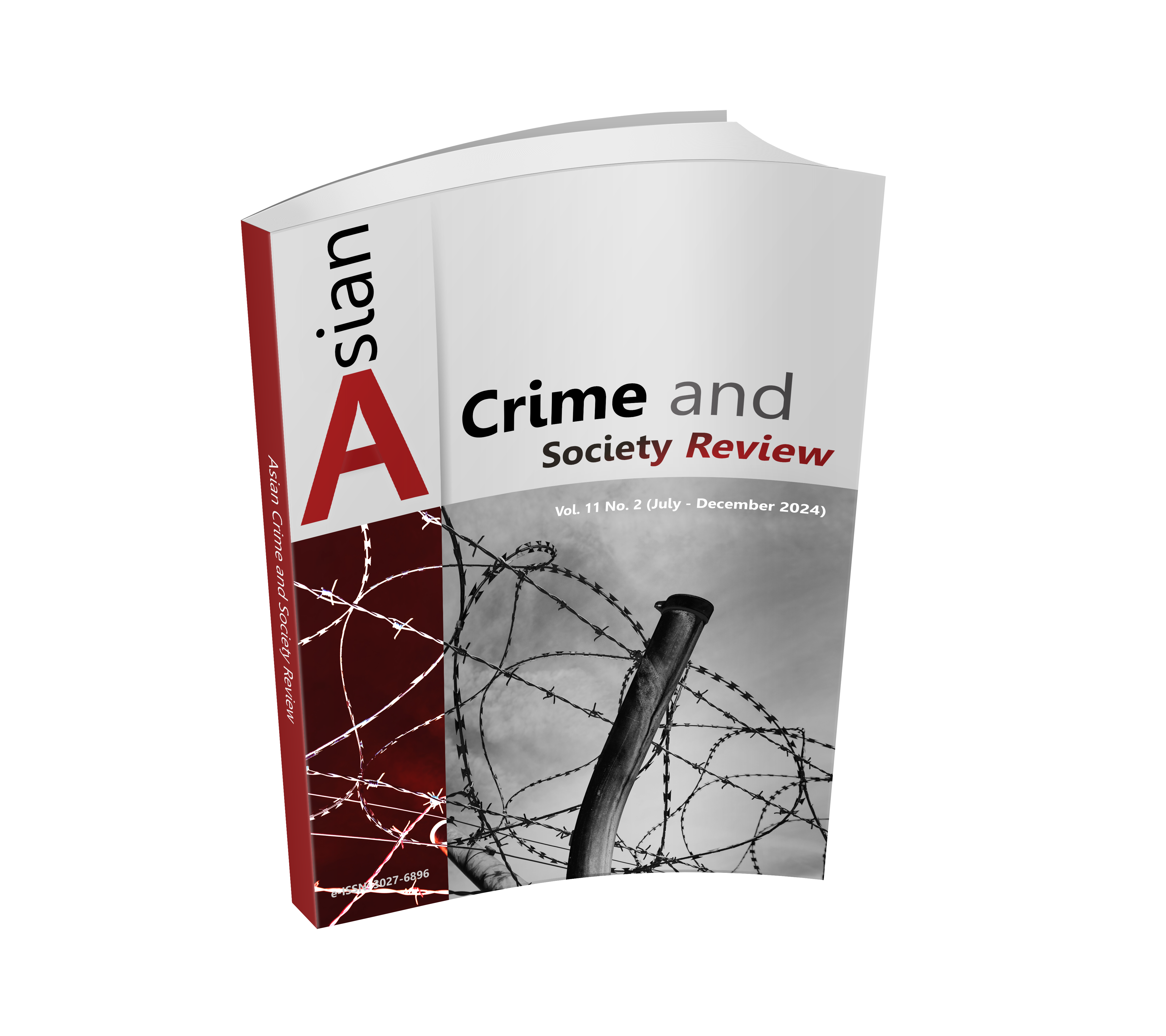A DISCURSIVE ANALYSIS ON THAILAND CONSTITUTION’S PREAMBLES: A POLITICAL LANGUAGE AND THE CONSTRUCTION OF THAI POLITICAL ‘TRUTH’
DOI:
https://doi.org/10.14456/acsr.2024.9Keywords:
Thailand Constitution’s Preamble, Discursive Analysis, Constructive Thai Political TRUTHAbstract
Almost 90 years after the Siamese Revolution of 1932, Thailand promulgated 20 constitutions to legitimize the political power in Thailand. There were also 21 times of the successful and unsuccessful coup d’état which labeled Thailand as the ‘4th most constitution changing country in the world’. A so-often coup d’états have affected Thailand Constitutions with more complexity, more categories, and a more statutory or constitutional interpretation. This article provides a brand-new approach to understanding Thai politics by connote-to-conceal the political intention behind the rich texts of Thailand Constitution’s Preambles. The purpose is to reveal the power relation effecting in the legal and the social organization of the Kingdom of Thailand. This article applied ‘Foucauldian Discourse Analysis’ into the investigation process on 20 Thailand Constitution’s Preambles. The result found some crucial discourses indicating some substantive confluence between the National Security, The Army, and the King against the ‘Democratic’ People Participation. The synonymous between the ethical majestic of the Thai King, the peacemaker Junta, and the limitation of the King subject’s participation has been constituted as the ‘TRUTH’ in the legitimization of Thai political power while the people’s raising for democracy has been depreciated on the contrary.
Downloads
References
Anderson, B. (1977). Withdrawal symptoms: Social and cultural aspects of the October 6 coup. Bulletin of Concerned Asian Scholars, 9(3), 13-30.
Banting, K., & Simeon, R. (1985). Introduction: The Politics of Constitutional Change. In K. Banting, & R. Simeon. (eds.). The Politics of Constitutional Change in Industrial Nations (pp. 1-29). London: Palgrave Macmillan.
Bunbongkarn, S. (2004). The military and democracy in Thailand. Retrieved from https://press-files.anu.edu.au/downloads/press/p33231/pdf/ch0335.pdf.
Chanrojkit, P. (2015). Thailand Constitutions: origins and matters. Bangkok: King Prajadhipok's Institute.
Charoensin-o-larn, C. (2013). Language and Politics/The Political. Bangkok: Vibhasa.
Charter for Administration of the Kingdom, 1991.
Connors, M., & Hewison, K. (2008). Introduction: Thailand and the “good coup”. Journal of Contemporary Asia, 38(1), 1-10.
Constitution for Administration of the Kingdom, 1976.
Constitution for the Administration of the Kingdom, 1974.
Constitution of the Kingdom of Siam, 1932.
Constitution of the Kingdom of Thailand (Interim), 2014.
Constitution of the Kingdom of Thailand, 1946.
Constitution of the Kingdom of Thailand, 1997.
Constitution of the Kingdom of Thailand, 2007.
Constitution of the Kingdom of Thailand, 2017.
Dicey, A. (1915). Introduction to the Study of the Law of the Constitution. London: Macmillan.
Eisenhart, C., & Johnstone, B. (2008). Discourse Analysis in Rhetorical Studies. In B. Johnstone, & C. Eisenhart. (eds.). Rhetoric in Detail: Discourse analyses of rhetorical talk and text (pp. 3-21). Amsterdam: John Benjamins Publishing Company.
Elkins, Z., Ginsburg, T., & Melton, J. (2009). Introduction. In Z. Elkins, T. Ginsburg, & J. Melton. (eds.). The Endurance of National Constitutions (pp. 1-11). Cambridge: Cambridge University Press.
Foucault, M. (2013). Lectures on the Will to Know. In D. Defert. (ed.). & G. Burchell. (trans.). London: Palgrave Macmillan.
Frosini, J. (2012). Constitutional Preambles at a Crossroads between Politics and Law. Rimini: Maggioli Editore.
Hague, R., & Harrop, M. (2007). Comparative Government and Politics: An Introduction. New York: Palgrave Macmillan.
Marks, T. (1980). October 1976 and the Role of the Military in Thai Politics. Modern Asian Studies, 14(4), 603-644.
Mills, S. (1997). Discourse. London: Routledge.
Orgad, L. (2010). The Preamble in Constitutional Interpretation. International Journal of Constitutional Law (I-CON), 8(4), 714-738.
Petchlert-anan, T. (2018). “Reason” for Coups in Modern Siam/Thailand. Bangkok: Social Science and Humanities Textbooks Foundation.
Preechasinlapakun, S. (2012). A four paths of Thailand Constitutional Study. CMU Journal of Law and Social Sciences, 5(2), 29-43.
Saengkanokkul, P. (2016). Constitution: History, Constituent Power, and Transition. Nonthaburi: SameSkybooks.
Tepnarin, P. (2012). King and nation in royal nationalist ideology: the investiture of sovereign power during a crisis of political transition. Master of Political Science Thesis, Thammasat University.
Tepnarin, P. (2022). Dhammaraja liberalism: the power dynamics between the monarchy and democratic institutions in the majority-restriction project (1990-2020). Doctor of Philosophy Thesis. Thammasat University.
Voigt, S. (1999). Implicit Constitutional Change-Changing the Meaning of the Constitution Without Changing the Text of the Document. European Journal of Law and Economics, 7, 197-224.
Winichakul, T. (2016). A face of Royal Nationalism: On Thai History. Nonthaburi: SameSkybooks.

Downloads
Published
How to Cite
Issue
Section
License
Copyright (c) 2024 Authors

This work is licensed under a Creative Commons Attribution-NonCommercial-NoDerivatives 4.0 International License.










.png)


